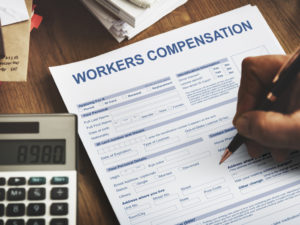Legal Implications of Coronavirus
Posted March 20th, 2020 by Anthony Carbone.
Categories: Legal Topics.

The situation surrounding the recent outbreak of coronavirus is changing daily and seemingly unpredictable. The number of cases across the country is rapidly climbing, and businesses need not only to plan for the immediate impact on their operations and workforce but for the longer-term impact on their business plans. During this pandemic, employers need to keep in mind federal, state, and local laws surrounding topics that could create potential issues like discrimination, leave, worker’s compensation, and confidentiality.
Discrimination Claims
The US Occupational Safety and Health Administration (OSHA) requires employers to maintain a safe workplace, and currently, this includes taking steps to protect workers and reducing the risks associated with the COVID-19 outbreak. Employers have the right to implement policies that restrict business travel and require employees returning from high-risk destinations to self-quarantine. If employees have been in potential contact with an infected person, they may also be required to self-quarantine.
At the same time, employers need to pay mind to avoid workplace discrimination stemming from cultural biases or racial perceptions that  particular individuals are more likely to be exposed to or infected with COVID-19. On a similar topic, if an employee is forced to self-quarantine because of potential exposure to the virus, but is showing no symptoms, the employee may attempt to file a “regarded as” disability claim. These claims are based on an employee being treated differently because he or she has a history of a disability or is believed to have a non-transitory or minor physical or mental impairment.
particular individuals are more likely to be exposed to or infected with COVID-19. On a similar topic, if an employee is forced to self-quarantine because of potential exposure to the virus, but is showing no symptoms, the employee may attempt to file a “regarded as” disability claim. These claims are based on an employee being treated differently because he or she has a history of a disability or is believed to have a non-transitory or minor physical or mental impairment.
To protect against such claims, employers should keep proper documentation of policies put into place regarding infection control and ensure these policies are applied impartially and consistently across the entire workforce.
Leave Administration
Remote work is most effective to reduce the spread of COVID-19 in the workplace, and for many jobs and industries, this is feasible and has already been put into effect. For jobs not suitable for remote work, employers are facing difficult decisions such as:
- If an employee is required to be quarantined, is the employer required to provide equipment for remote work? If not, is the employee entitled to pay while quarantined?
- Is job protection provided to employees who are not sick but choose to self-quarantine?
- If an employee is required to self-quarantine but has no paid leave available, are they subject to loss of pay or termination?
Individual state law will regulate employee’s rights in this situation and the subject of leave administration and accommodations guidelines.
Employers need to tread carefully in this situation, as concerns such as loss of pay or termination may lead employees to withhold information regarding their health that could put the rest of the workforce at risk. Employers need to develop procedures surrounding required self-quarantine, reporting protocols, what leave policies apply, and what additional documentation is required.
Workers Compensation
 The only situation in which employees may be entitled to worker’s compensation surrounding COVID-19 is if the employee contracts the virus as a result of business-related travel. As mentioned earlier, employers are restricting travel during this pandemic because of this reason; OSHA requires employers to maintain a safe workplace and implement infection control, which includes not forcing employees into high-risk areas through work-related travel. Worker’s compensation generally would not apply if an employee contracted the virus from a colleague in the office.
The only situation in which employees may be entitled to worker’s compensation surrounding COVID-19 is if the employee contracts the virus as a result of business-related travel. As mentioned earlier, employers are restricting travel during this pandemic because of this reason; OSHA requires employers to maintain a safe workplace and implement infection control, which includes not forcing employees into high-risk areas through work-related travel. Worker’s compensation generally would not apply if an employee contracted the virus from a colleague in the office.
Confidentiality
The reality of this situation is that employers may have to communicate that an employee has tested positive for COVID-19. While that is the employer’s general duty, confidentiality and privacy requirements of the Americans with Disabilities Act and the Health Insurance Portability and Accountability Act preserve the affected employee’s privacy, meaning their identity cannot be shared. Employers are faced with a balancing act between ensuring their employees have a safe, disease-free workplace and protecting the rights of employees, including confidentiality.
With the situation changing daily and new cases being seen everywhere, every day, there’s no prediction as to when the spread of COVID-19 will slow down. If you think you may be a victim of discrimination or wrongful termination surrounding the current outbreak of COVID-19, or believe you may be entitled to worker’s compensation, contact the Law Offices of Anthony Carbone today.


